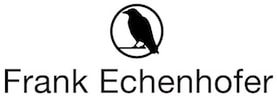in conversation
ON EMBODIED SPIRITUALITY, PSYCHEDELICS & INNER GUIDANCE
|
3/20/2022 Embodied Spirituality - Part 1EUGENE GENDLIN'S DISCOVERY. I WANT to talk about my mentor Gene's exploration of the in-between and why I love so much what he's done. How he's inspired me, and how I feel he's given me permission to take what he's given to me and take it further into the spiritual domain. I also want to talk about other people who have done this, working with the in-between, but I want to make it most about Eugene Gendlin, and how these other people have gone where he's gone, but how they weren't able to go as far as he went. I think that will help me understand Gendlin more and help me communicate what I feel is the breakthrough that Gendlin accomplished that created a breakthrough for me. He broke open a new trail for me and I only just now am seeing it—how I can follow his way but how I’m going to do it in my own way. What I think I can contribute comes through taking in my intuitive sense of what he's accomplished and putting it in new words that are more accessible to others, and also help me understand it more deeply. I have to take his words inside myself, metabolize what he's saying and come up with an easier way for me to think about it. So what is this trail following? What is his embodied philosophy? His contribution is in psychology and in philosophy — I think I can use the word embodied here. His contributions in psychology are in psychotherapy, but it’s experiential. There's something about it being experiential that's really unique and unlike anything that anyone else has done. It’s even beyond what he did with Carl Rodgers. Rodgers never understood completely what Gendlin accomplished. Gendlin says this. It’s easy to underestimate Gendlin, mainly because of his little book, Focusing. It seems so simple on the one hand, what he's done in this book, and if he hadn't written so much about the philosophy behind what he's done, no one would ever have known what he did behind the scenes, because Gendlin is I think the first great embodied philosopher that we've ever had. He surpasses all the other philosophers that I've loved, because his philosophy is never grounded in theory, but always grounded in the moment. All he knows about this philosophy he's seen arise in the present moment. So it’s a philosophy that didn't start out in the realm of thinking, but arose out of the ground of experiencing. It’s the only grounded philosophy I have ever read. It’s a kind of miracle that he was able to do it. This is the hidden Gendlin and I want to show that this secretly underlies what focussing is. Because it’s an embodied philosophy, it can't be put into words. You have to follow his trail in experiencing to understand his philosophy, and that's amazing. He says most people think philosophy happens when you assemble concepts in unique ways, but that’s just playing with concepts, assembling them in the air disconnected from experience. His philosophy doesn't do that. Gendlin asked us to consider: where does thinking come from? Right now when I'm writing, he said, how do I know what comes next? Is it in my mind somewhere? As I write, I realize, I pause. As I pause, something arises in my mind. So it is step by step. Each arising leads to the next arising. If I pause and wait, something really amazing happens. If we think about writing in the usual way, we think we are figuring out what comes next. Gendlin says we are mistaken. If we try to have a thought and write it out, it is a constricted and awkward kind of thinking. Haven’t we all noticed that? But if we slow the process down and wait, the next thing that arises does fit. I was amazed what Gendlin had discovered, but Gendlin also says this is not his discovery. This has been known forever: Something happens next. With thinking, when he calls it embodied, he means there's a relationship going on between you and me right now. We are experiencing something about thinking at this moment. What I've learned and what I know is connected to what I imagine you have learned and know. The act of what comes next calls upon all of that. When we relax, then things arise that come from all of that. People locate thinking as if it’s in their mind, as if it's their thinking, but when the process slows down, it comes from a different place. Another way of saying all of this is that Gendlin has a new way of thinking that's spontaneous. He spent enough time with this process in his own experience to know what gets in the way of it. One thing that gets in the way is having socially constructed ways of describing reality. If you plug those into your thinking, it’s the opposite of pausing and waiting. So part of receiving his discovery is to be vigilant about how you're using words. Notice if you're grabbing conventional phrases. Gendlin's on guard. He doesn't let them come in. Instead he's just waiting and something always happens. It might be a detour somewhere else, but the way the mind works, it will find its way back spontaneously. For me, in the beginning, Gendlin was very difficult to read, understand, and appreciate. And still it’s hard for me to express clearly why I love what Gendlin has accomplished. And most people I know also find Gendlin to be difficult, but I think he is trying hard to provide a way for us to know something that is profoundly important. Comments are closed.
|
|
